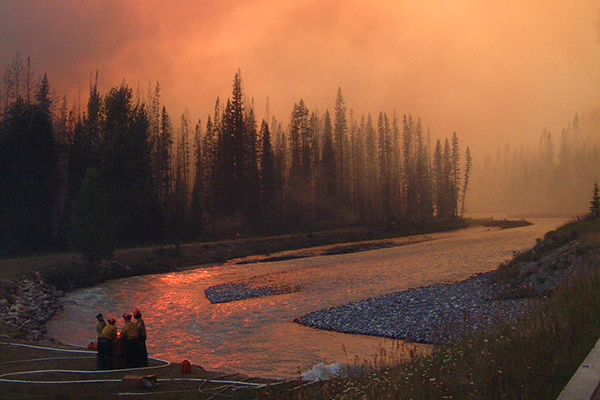Firestorm sparks national acclaim
June 11, 2018
Share

UPDATE: Following the publication of this article, Mr. Struzik's book Firestorm: How Wildfire Will Shape Our Future was selected as the winner of the Science Writers and Communicators of Canada science book prize.
The Science Writers and Communicators of Canada (SWCC) have announced their 2017 Book Awards shortlist, selecting among their final five Firestorm: How Wildfire Will Shape Our Future by Queen’s University environmental expert Edward Struzik.
The SWCC, a countrywide alliance of professional science communicators, works to cultivate excellence and awareness of science writing and journalism in Canada. Their annual Book Awards recognize authors focused on basic or applied science or technology in health, social, or environmental issues, both historical and contemporary, and their value in promoting greater understanding of science by general readers.
“I’m honoured that the SWCC has chosen to shortlist Firestorm, as it recognizes my efforts to bring these important scientific issues to light with the general public in an accessible way”, says Mr. Struzik, a Fellow with the Queen’s Institute for Energy and Environmental Policy. “Wildfires are a rapidly growing concern for many areas of Canada, so the more knowledgeable we are on how fires are changing, the better chance we have of protecting our communities.”
In Firestorm, Mr. Struzik interviews scientists, firefighters, and resource managers across the United States and Canada, who are focused on developing new methods of managing wildfires. He says that large-scale megafires, like those in Fort McMurray in the spring of 2016 and the increasing size of seasonal fires in California, will become more commonplace, and that scientific research and government investment into combating the growing threat are lagging behind.
“In Canada and the United States, we are way behind in terms of our preparedness to deal with the bigger and more ferocious fires that we’ve been witnessing in the past five or more years,” says Mr. Struzik. “Between longer and more widespread periods of drought, changing weather patterns, and thawing northern regions, the impacts of climate change are raising the frequency and destructiveness of wildfires – a trend with no end in sight.”
In addition to his work on wildfires, Mr. Struzik is a leading arctic researcher who has studied the effects of climate change on the Canadian Arctic for over 35 years. He is on the board of the Canadian Arctic Resources Committee, a citizen's organization dedicated to the long-term environmental and social well-being of the Canadian Arctic and its peoples, and writes and comments frequently on Arctic issues, like those surrounding oil and gas exploration in the region.
The SWCC will select a winner from their 2017 Book Awards shortlist this month, and the award will be presented during Science Literacy Week in September 2018.